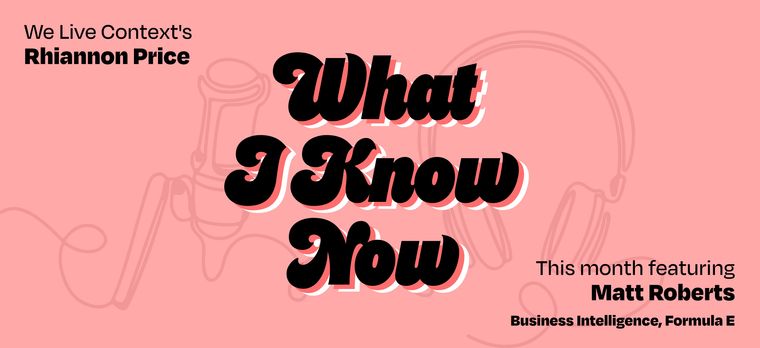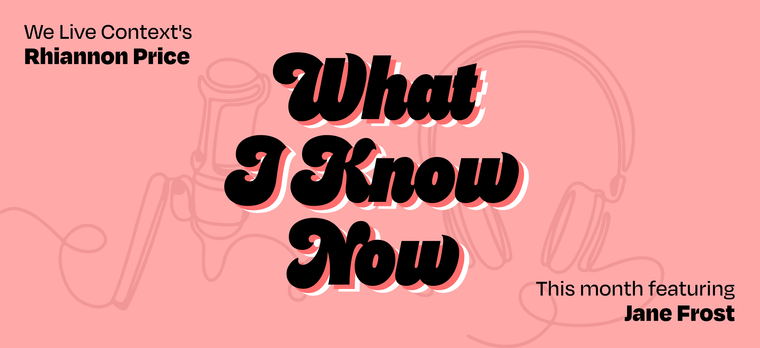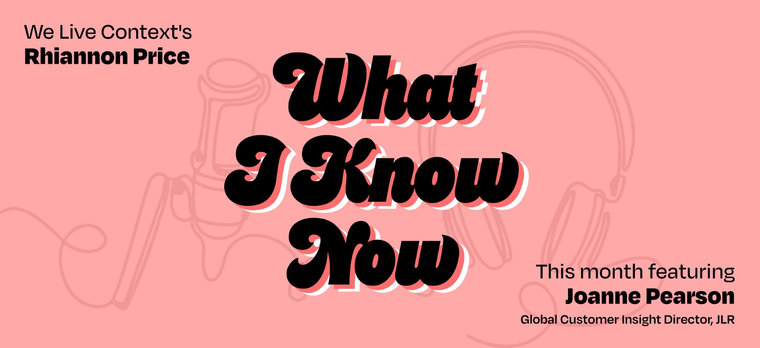What I Know Now... Lenny Murphy
Each month, Simpson Carpenter’s Rhiannon Price asks some familiar faces in the MRX world what they have learned about themselves and the industry on their journey so far.
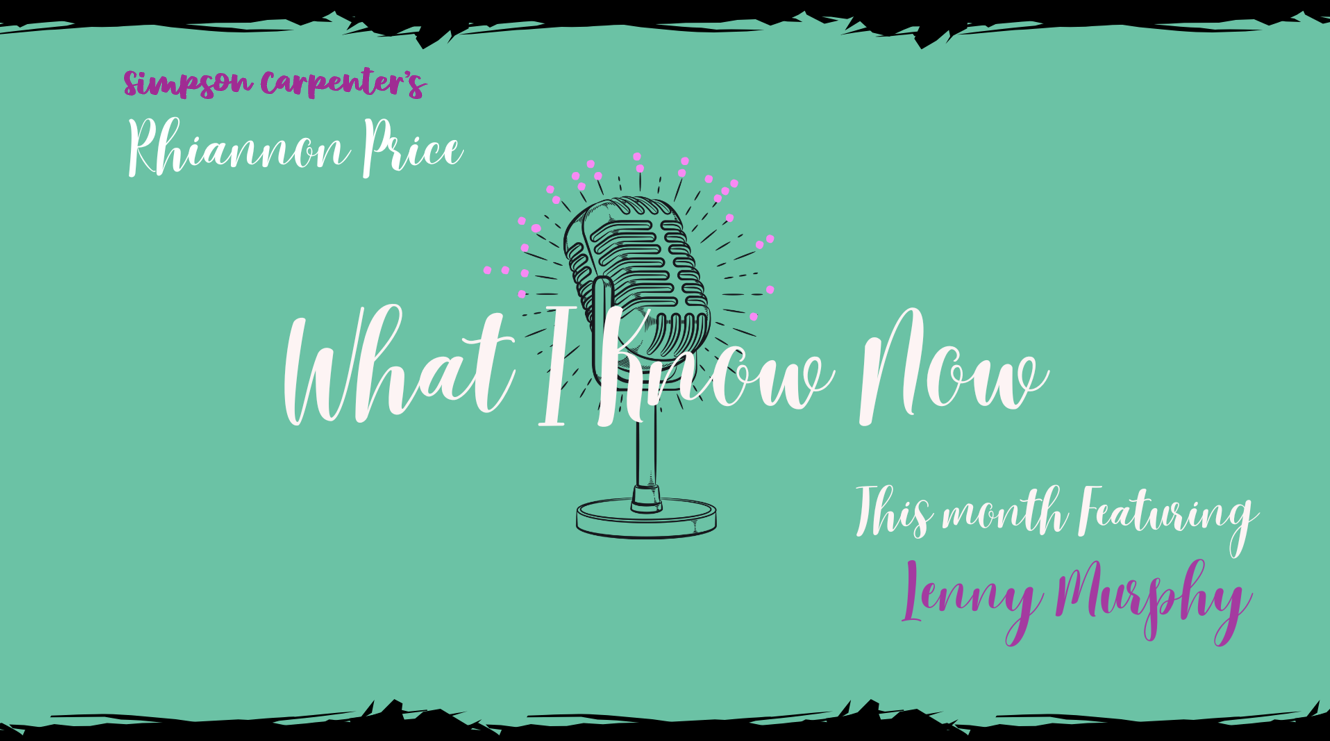
I normally start these with a reminder of why I write ‘What I Know Now’, but for this edition I am doing something different. Lenny sent me an AI written article based on our conversation, and I thought what better way to intro our chat!
On a crisp Monday morning, March 3, 2025, I sat down – virtually - with Lenny Murphy, a prominent figure in the market research industry, for my ongoing series, What I Know Now. What began as a personal quest to glean wisdom from industry peers during a job search last July has evolved into a platform to share their stories. Lenny, with his rich career spanning operations management, research entrepreneurship, and consulting, was high on my “hit list” of inspirational voices. Despite battling a late-winter bug (blamed on his two small children), I couldn’t pass up the chance to hear his journey. Thankfully, he graciously agreed to chat from his farm in South Central Kentucky, where he lives a life far removed from his early days as a research CEO.
Lenny Murphy’s journey - which takes us from accidental researcher to industry sage, from suburbia to farm life - is a testament to resilience and adaptability. As he talks about everything from being 30 years sober, to his intimacy with failure, I’m grateful for his candour. And in an industry racing toward automation, he reminds us that the human touch - curiosity, intuition, and a willingness to fail - remains our north star.
Thanks for the intro, AI! Now, let’s get to the questions…
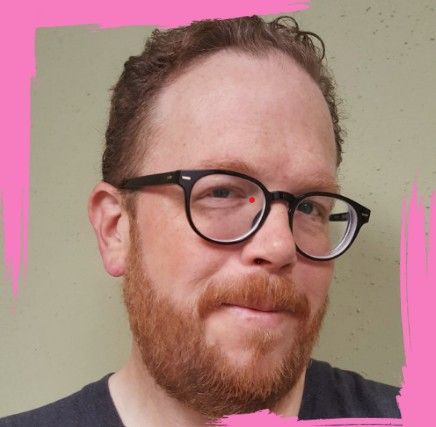
As I do with all my interviews, let’s start with the big one at one…are you where you thought you'd be today?
No. In the best possible way, right? I never predicted the life I have today - my place in the industry, my career, my position. And if I had tried to plan out the trajectory of my life, both professionally and personally, I probably would have done myself a disservice.
In what way?
My career started with building research companies - I was the CEO – and this kind of public facing role is an accidental component of that. I just find it surprising that people are interested in what I have to say about things. A few years ago, we bought a small farm in South Central Kentucky, and that’s where I live with my family, homeschooling our children. And then I have this virtual life where I am a consultant and strategist and continue to be engaged at very high levels helping companies succeed. And those were just not things that I saw coming. They’re things that have developed.
There's so much to unpick there. I'm fascinated by the personal move to a rural farm and the decision to home school your children. Was that always on the cards or did something trigger that?
I think it was an evolution really, especially post Covid. We were in the top school district in Atlanta and then with Covid, that went away. It just wasn’t relevant to our lives anymore and made us reassess things. I'll even tell you the story really quickly. We were on a little family vacation during Spring break - driving to Austin from Atlanta – and we prefer to take back roads so you can see the country and experience all of that. So, we're joking on that trip ‘I'd like to live out here in the middle of nowhere East Texas”. But not really. Then at the end of that trip, after driving through so much country in Oklahoma, Texas and Arkansas, my wife and I just looked at each other and said, “I don't think I'm joking”. And the idea just grew on us. It sounds strange, but a week later we found this property, fell in love, sold our house and two months later moved here. For what it’s worth, I believe the universe guided us to this place.
So, what are you getting now that you weren't getting in that swim - tennis community in suburbia?
It was important that we were more in control of the things that could impact our family, there’s definitely a sense of security from the fact life is simplified. In many ways there aren’t as many variables that we don't directly influence. But there's also just the peace and quiet – we don’t feel like we are impacted by the chaos of the world. This is not a commercial farm and we're not preppers or anything of that nature, but it's pretty cool to grow some of our own food - there's a real sense of accomplishment in doing those things.
This all sounds so amazing! Now tracking back to your career for a second, and going way back…what got you into research in the first place?
I fell into research. I was the regional operations manager for a wireless company, so I was more of an Ops kind of guy. And I’m dating myself now, but that company was a paging company! So, I was laid off because that was the beginning of the cellular age, and that company didn't transition very well into that. So, looking at ads near where we lived, I saw there was a small healthcare research company called the Myers Group that needed someone to run their phone room, and I thought I could do that. I mean, that's what I'd been doing. Not knowing there was very little comparison between running an inbound customer service call centre and an outbound call centre, but somehow, I got the job and there I was, suddenly in research. And I found I loved the focus of understanding people as there has always been a part of me that's very curious and inquisitive. Then I was recruited by one of my vendors that was experimenting with VR and online. This is early 2000/ 2001. They were a start-up, and they recruited me to come in and be the COO and it was fun because I got to be really creative putting new tools together, adapting these solutions all at the very beginning of the digital age of research.
But it was still early times from an adoption standpoint, so I ended up getting laid off as that company was not doing particularly well. Then I had a client that was at another research company, Patti Nelson, at Q Research Solutions. I'll give a shout out to her! We were talking, and she said “well, you're a consultant now. So, you start tomorrow working with me as consultant.”
And from there I launched my own research company, Rockhopper Research which was doing great, but then along came the recession and we had built a really great business in financial services. Too good really, so when the recession hit, we went from $4 million in revenue to $1.5 million, but with the same number of projects. And that prompted me to think “Ok this model doesn’t work”. Also, at the same time we were seeing the advent of social media and the explosion of mobile. There was all this transformation happening that was going to impact research. I was friends with the folks at Greenbook and they invited me to consult with them and help with content strategy. So, I started blogging and the only thing I knew to talk about was what I was experiencing – the deconstruction of the business model and the challenges that exist within the industry while going through this tech disruption. And it was this that launched this second phase of my career.
And what do you particularly enjoy about this niche you have carved out for yourself?
I enjoy it because I like thinking about the future. I like paying attention. I guess I have a gift to ingest lots of information and process it quickly. I mean, a huge chunk of my day is just reading and listening and talking and absorbing information, which is inherently a research process. And this all takes time that as a CEO I didn’t have. And it's worked out really well with Greenbook because as my client we've developed this really great relationship over the years, it's mutually beneficial. But I should be clear here, Greenbook is a client of mine, I am not an employee or an owner as a lot of people make that assumption.
It sounds like you really enjoy this collaboration, so what is your definition of being satisfied and fulfilled?
When I have helped somebody. My kids asked what I do for a living and I said, “I help people”. They probably think I’m in the Mafia or something, right?!
Ha, let them think it!
But ultimately that is it, I've helped somebody solve a problem that has then manifested in some level of success for them and their families, their employees, their stakeholders. You know, I'm American and I'm a capitalist. I understand that a rising tide floats all boats. When you help somebody - a leader - be successful that's going to help lots of other people be successful as well. So that gives me satisfaction. It's kind of like watching the plants grow out here on the farm.
OK, I feel really naive and ignorant because I thought that you were Greenbook! Not ownership necessarily, but I thought that you were part of it. Because from a public facing perspective, people think you're synonymous with it, right?
Oh, I mean, I'm in the leadership team and I have worked with the Managing Director - Lukas Pospichal - for 15 years now. I programmed and designed all the IIEX events. I managed all of the content, and I did all of those things in a very functional way. I don't anymore as we have a really great team. My role at Greenbook is more mad scientist now!
Can we skip back to starting your own company – Rockhopper - because you've been on the boards of different companies and many other leadership roles and I'm just interested in the type of spirit and personality that leads somebody down that road?
Well, first off, I'm a pretty crappy employee! I'm arrogant. I am bull-headed. I often think that I know better than others. I'm a little oppositional. I'm a little contrarian. It's hard to be an employee when you have those personality traits which are probably negatives overall. So, for people like me the only real path is being my own boss.
But I'm also hard working and haven't worked less than 60 or 70 hours a week in decades, but I want to balance my family life too. All of those considerations lead me to the path of doing my own thing, which I’ve always had the drive to do. I started a coffee house when I was 19, and I didn't know anything about how to run a business. And that did not end well from a personal financial standpoint.
But doing your own thing does require a level of arrogance, pig-headedness and stubbornness. You're going to work a lot and there's great risk - I've been very financially successful and I've had to file for bankruptcy. There's been risk and reward and some pretty significant challenges that have manifested.
You mentioned filing for bankruptcy, which is obviously a huge thing, and it leads me onto a question about what your relationship with failure is like?
Intimate. There have been lots of failures, and it's never fun. But I have screwed up so many times in my life, personally and professionally. I was talking to my son about this just the other day. It's not that you screwed up, because OK, own it. Learn from it. It’s if you hurt somebody else or cause some damage, then you have to try and make it better. But ultimately, it's just part of the process of learning. That said, I've never been one who learns - usually the lesson has to be pretty painful to be transformative for me. I can learn tonnes of passive information, but to internalise it usually comes with an ‘ouch’ - you know, that hurt.
The older I get - and I turned 54 last month - I don't make the same mistakes, and they're generally not quite as painful as they used to be. But boy, in my 20s and 30s I was very intimate with failure and with the pain that comes with it.
And would you change any of that? Or did all of those mistakes need to happen?
There are certainly things I wish I had not necessarily gone through, mostly because of the impact it may have had on other people in my life, but then again, we all have free will. We all make our choices right? Then learn what we need to learn too.
I've shared this somewhat publicly, so I will tell you that I'm a recovered alcoholic. I've been sober 35 years this year. So, I often think of those things through that lens. I mean it was not fun being an alcoholic and the process of getting sober kicked my *** in many ways. But my perception on these things is rooted in that same concept. It took what it took for me to get sober. It took what it took for me to become a father. It took what it took for me to grow a business. It took what it took for me to be where I am today.
And although I may feel remorse for the impact on other people - whatever those decisions may have been - the reality is that my life is immeasurably better, and I have a positive impact on more people on a daily basis than I ever could have imagined. And I don't know if I would be in that situation if I had not gone through the failures and mistakes in the past.
Thanks so much for sharing that, Lenny, as that's obviously a personal thing. And congratulations on being 35 years sober.
Well, I don’t talk about it often because it's not really relevant, but in this context it's part of my world view.
I noticed that you're involved with two universities, how did you get into that?
They are Georgia and Michigan State Universities, and they both have what is, I suppose, the predominant Master’s programmes for Market Research in the US. So, they asked me to be on the board as they both have very large active advisory boards with different people in the industry that help them think through any changes that need to be made within the programme. I will also periodically come in as a guest lecturer and talk about the future of the industry. It's very gratifying. And since I'm being a little more open than normal, I will tell you that I do not have a college degree. It's just an odd twist of fate that I'm on the Advisory Board of two Master’s programmes when I don't even have a Bachelor's degree. Going back to the recovering alcoholic thing, right? You do the math, that was my college years. So personally it’s just cool too.
So how does that feel?
There was a time when I felt a little bit of imposter syndrome, I guess. And there was even a time that one of those programmes offered to give me an honorary Master's degree, but I turned it down. I’ve done OK without having those things behind my name. I've done this the hard way, and I've learned what I need to learn. It goes back to the fact that I'm happy to help them because that's what I do for a living. I help people, but I don't need that. I've kind of moved past that. And, in the end, the world is changing. Our oldest daughter will be 30 this year and she has a Master's degree from Georgia Tech. And now she lives on a permaculture farm, which is basically a commune in Northern California and is the Programme Director. Her degree has nothing to do with what she does. She also doesn't make any money! But the point is that we advocated for her to go to college and all those things, but her life took her down a different path.
We have five kids who are 29, 26, 15, 14 and 12. The universe saw fit to give us that spread of ages. So, the younger ones, because of the advent of AI, may need a trade. Now that's a whole other bigger conversation, but AI is changing and is going to impact how people think through these things.
Yes, it's certainly going to be a very interesting decade ahead of us, isn't it? So as somebody who is at the forefront of understanding the change within our industry, I want to get your perspective on where you think our industry is going?
AI is a data-driven technology, and we are in the business of providing data. So, it is utterly transformative in how we think about business models and relationships with clients.
Effectively the insights will be a feed into an LLM, and that LLM will either be a broad LLM or it will be a bespoke build for clients to answer specific issues. And we will primarily be a data feed into that. It'll just be a constant flow of information in and will be the first place the client will go to answer a question - which is what it we should have been doing all along, right? I mean we duplicate so much research and it's really wasteful. But there's still going to be a need for great big honking research studies, for example, innovation or market sizing. And there is still going to be a need for consultants. But the process of everything in between will continue along the trajectory that we've already been on for quite some time - and everything from programming to analysis and everything that happens in between will increasingly be driven by AI.
OK so I just want to switch to some of the more classic questions now, let’s start with the best and worst piece of advice you have ever received?
It was actually from a priest when I was young. I was complaining about something that was going on in my life, and he asked me “would you rather be right or happy?” and I come back to that frequently. The worst advice was probably not buying Bitcoin!
Hunt that person down! Do you have a personal habit or practise that contributes to keeping you going?
I do start my day with centring myself. Prayer, meditation, whatever you want to call it. But it's fundamentally about going ‘OK, there's more in the universe than just me’. I am connected to my family, my colleagues, clients and many other people and there's an energy that flows between people. So, I take a few minutes to remind myself what the priorities are. I'll go outside on my porch, look at the mountains, drink some coffee, you know, just have a few minutes to just be.
Ok now I want to do some quick fire recommendations…
If you read just one book, what would it be?
‘Stranger in a Strange Land’ by Robert Heinlein. It's a great science fiction book. There's a concept in there called ‘grok’ which means to understand something in its totality. So, particularly as a researcher, we are never going to understand everything in its totality, but I want to understand as much as I possibly can about any topic. There is an emotional component that's very qualitative as well, walking a mile in someone else's shoes - it's all kind of wrapped up in that concept.
If you listened to just one podcast?
I really enjoy ‘The Theory of Everything’ by Curt Jaimungal. He's all over the place from a scientific standpoint and brings in lots of different experts to get into weird stuff like UFOs, consciousness, quantum science mechanics. I mean, it's just crazy but his inquisitiveness to deeply explore a topic with somebody is what I really enjoy.
And then I haven’t listened to it yet, but I am excited to start ‘The Telepathy Tapes’ which exploded at the end of last year about research done by a neuroscientist on non-verbal autistic kids and their apparent telepathy. It explores the nature of consciousness and understanding, and increasingly I've been thinking about this a lot with regards to AI and how we have to start leaning into those things that are uniquely human like creativity, intuition and imagination. I think it is those things that will differentiate us, so we have to find ways to leverage them.
I totally agree with you. I think from an evolutionary point of view, AI is going to force us to be more human. Because, ironically, I think everyone's worried about us becoming artificial and lazy and absent. But I think actually in many years’ time we're going to be a much more empathetic, intuitive race which will hopefully be better for everyone and push us into a different dimension as a human race.
I like that, yes. Another dimension of understanding who we are.
Ok, if you were to follow just one person on social media, who would it be?
It is foolish not to follow Elon Musk, solely because he is the largest influencer on the planet. And you can't begrudge his brilliance from a business or scientific standpoint. He has massive implications across the planet. Whether you like it or not doesn't matter.
And finally, if you remember just one thing?
Would I rather be right or happy?
I thought you might say that! Thanks so much Lenny. As anticipated, this has been a fantastic hour!
